Related Research Articles

Elizabeth Bishop was an American poet and short-story writer. She was Consultant in Poetry to the Library of Congress from 1949 to 1950, the Pulitzer Prize winner for Poetry in 1956, the National Book Award winner in 1970, and the recipient of the Neustadt International Prize for Literature in 1976. Dwight Garner argued in 2018 that she was perhaps "the most purely gifted poet of the 20th century".

John Lawrence Ashbery was an American poet and art critic.

Delmore Schwartz was an American poet and short story writer.
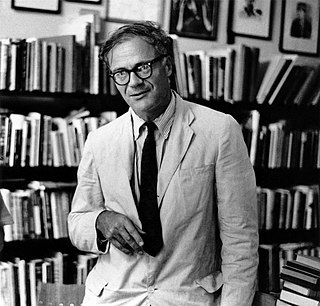
Robert Traill Spence Lowell IV was an American poet. He was born into a Boston Brahmin family that could trace its origins back to the Mayflower. His family, past and present, were important subjects in his poetry. Growing up in Boston also informed his poems, which were frequently set in Boston and the New England region. The literary scholar Paula Hayes believes that Lowell mythologized New England, particularly in his early work.
Confessional poetry or "Confessionalism" is a style of poetry that emerged in the United States during the late 1950s and early 1960s. It is sometimes classified as a form of Postmodernism. It has been described as poetry of the personal or "I", focusing on extreme moments of individual experience, the psyche, and personal trauma, including previously and occasionally still taboo matters such as mental illness, sexuality, and suicide, often set in relation to broader social themes.

Rae Armantrout is an American poet generally associated with the Language poets. She has published more than two dozen books, including poetry and prose.
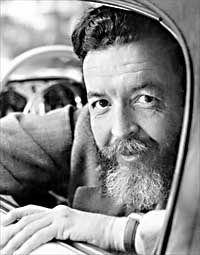
Randall Jarrelljə-REL was an American poet, literary critic, children's author, essayist, and novelist. He was the 11th Consultant in Poetry to the Library of Congress—a position that now bears the title Poet Laureate of the United States.
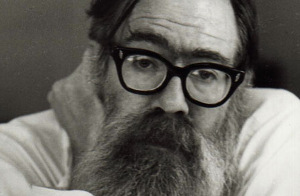
John Allyn McAlpin Berryman was an American poet and scholar. He was a major figure in American poetry in the second half of the 20th century and is considered a key figure in the "confessional" school of poetry. His best-known work is The Dream Songs.
Paul Mariani is an American poet and is University Professor Emeritus at Boston College.
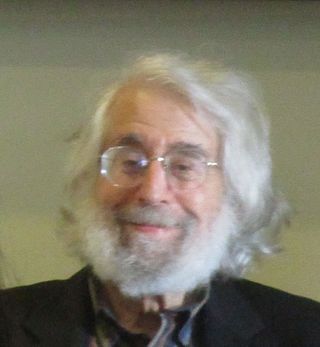
Lloyd Schwartz is an American poet, and the Frederick S. Troy Professor of English Emeritus at the University of Massachusetts Boston. He was the classical music editor of The Boston Phoenix, a publication that is now defunct. He is Poet Laureate of Somerville, Massachusetts (2019-2021), Senior Music Editor at New York Arts and the Berkshire Review for the Arts, and a regular commentator for NPR's Fresh Air.
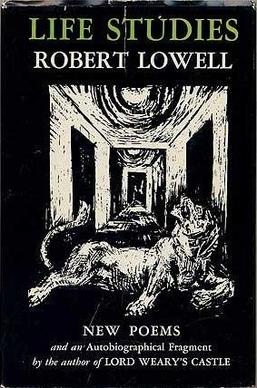
Life Studies is the fourth book of poems by Robert Lowell. Most critics consider it one of Lowell's most important books, and the Academy of American Poets named it one of their Groundbreaking Books. Helen Vendler called Life Studies Lowell's "most original book." It won the National Book Award for Poetry in 1960.
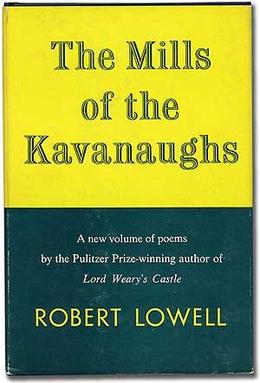
The Mills of the Kavanaughs is the third book of poems written by the American poet Robert Lowell. Like Lowell's previous book, Lord Weary's Castle, the poetry in Kavanaughs was also ornate, formal, dense, and metered. All of the poems are dramatic monologues, and the literary scholar Helen Vendler noted that the poems in this volume "were clearly influenced by Frost's narrative poems as well as by Browning."
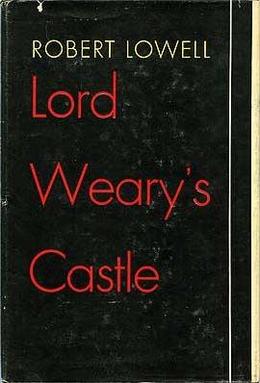
Lord Weary's Castle, Robert Lowell's second book of poetry, won the Pulitzer Prize for Poetry in 1947 when Lowell was only thirty. Robert Giroux, who was the publisher of Lowell's wife at the time, Jean Stafford, also became Lowell's publisher after he saw the manuscript for Lord Weary's Castle and was very impressed; he later stated that Lord Weary's Castle was the most successful book of poems that he ever published.
"Beyond the Alps" is a poem by Robert Lowell.
John B. Logan was an American poet and teacher.

For the Union Dead is a book of poems by Robert Lowell that was published by Farrar, Straus & Giroux in 1964. It was Lowell's sixth book.
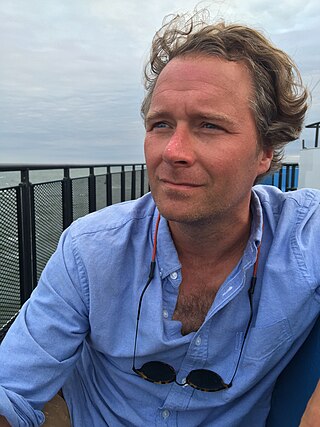
Dan Chiasson is an American poet, critic, and journalist. The Sewanee Review called Chiasson "the country’s most visible poet-critic." He is the Lorraine Chao Wang Professor of English Literature at Wellesley College.

Maria Saskia Hamilton was an American poet, editor, and professor and university administrator at Barnard College. She published four collections of poetry, with a fifth collection, All Souls, set to be posthumously published in September 2023. Her academic focus was largely on the American poet Robert Lowell; she edited several collections of the writings and personal correspondence of Lowell, Elizabeth Hardwick, and Elizabeth Bishop. Additionally, she served as the director of literary programs at the Lannan Foundation, as the Vice Provost for Academic Programs and Curriculum at Barnard College, and as an editor at The Paris Review and Literary Imagination.

The Dream Songs is a compilation of two books of poetry, 77 Dream Songs (1964) and His Toy, His Dream, His Rest (1968), by the American poet John Berryman. According to Berryman's "Note" to The Dream Songs, "This volume combines 77 Dream Songs and His Toy, His Dream, His Rest, comprising Books I through VII of a poem whose working title, since 1955, has been The Dream Songs." In total, the work consists of 385 individual poems.
Eileen Simpson was an American writer and psychotherapist. Her 1982 book Poets in their Youth records her life with first husband John Berryman and his circle of poets, including Delmore Schwartz and Robert Lowell. In 1984 she was a recipient of a Guggenheim Fellowship for Creative Arts in General Nonfiction.
References
The poem makes reference to The New Testament , John Milton's Paradise Lost, and to the song "Careless Love." Lowell notes that stanzas V and VI reference "John of the Cross's poem." [7]